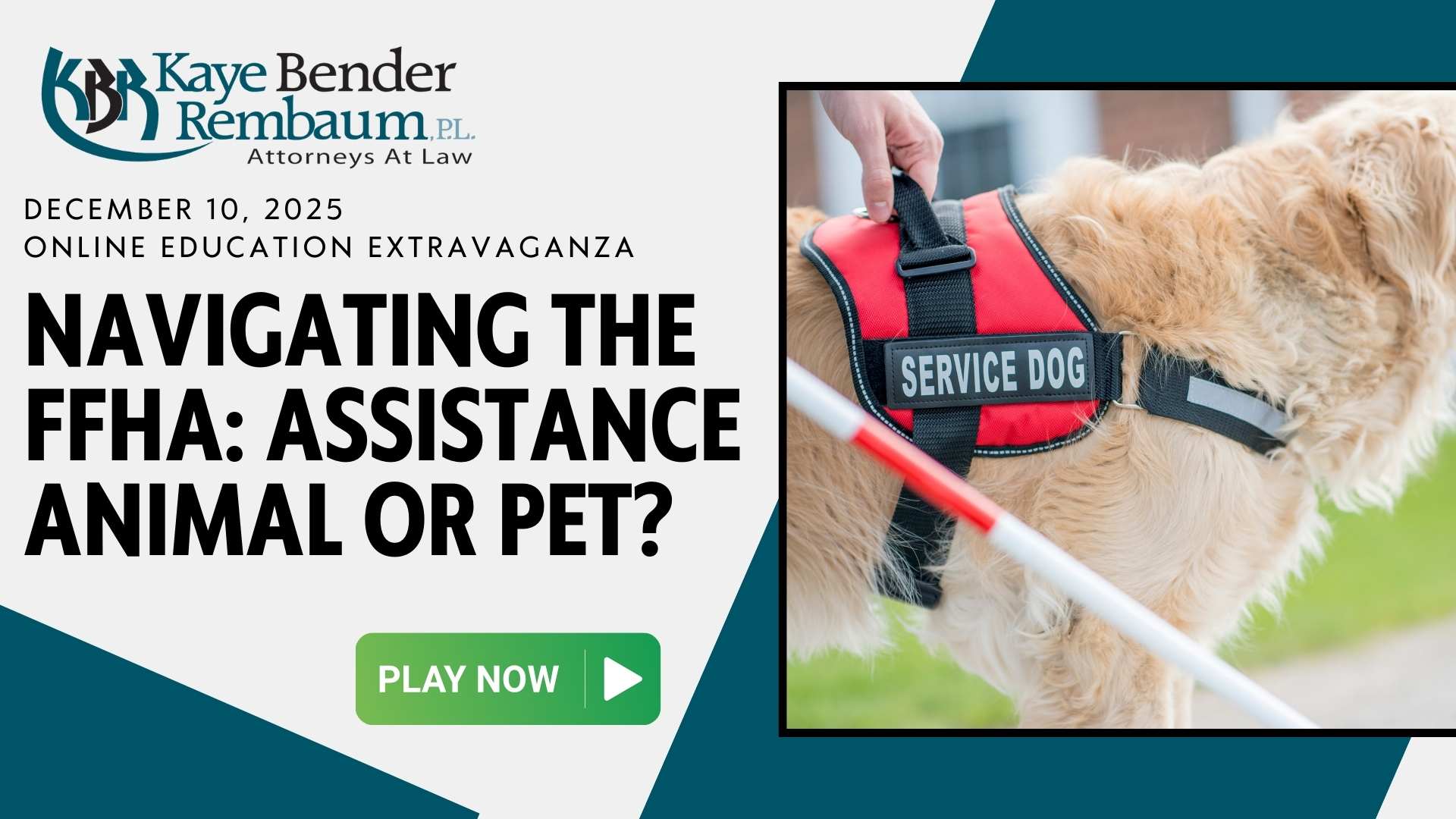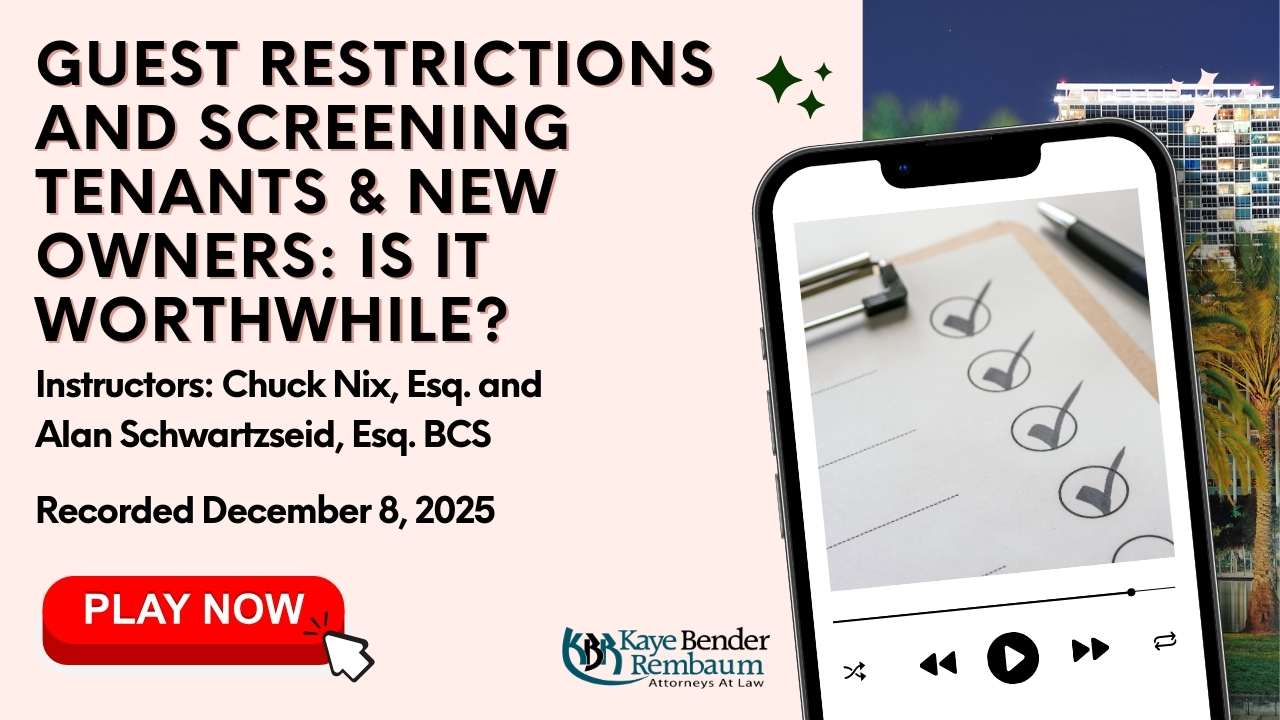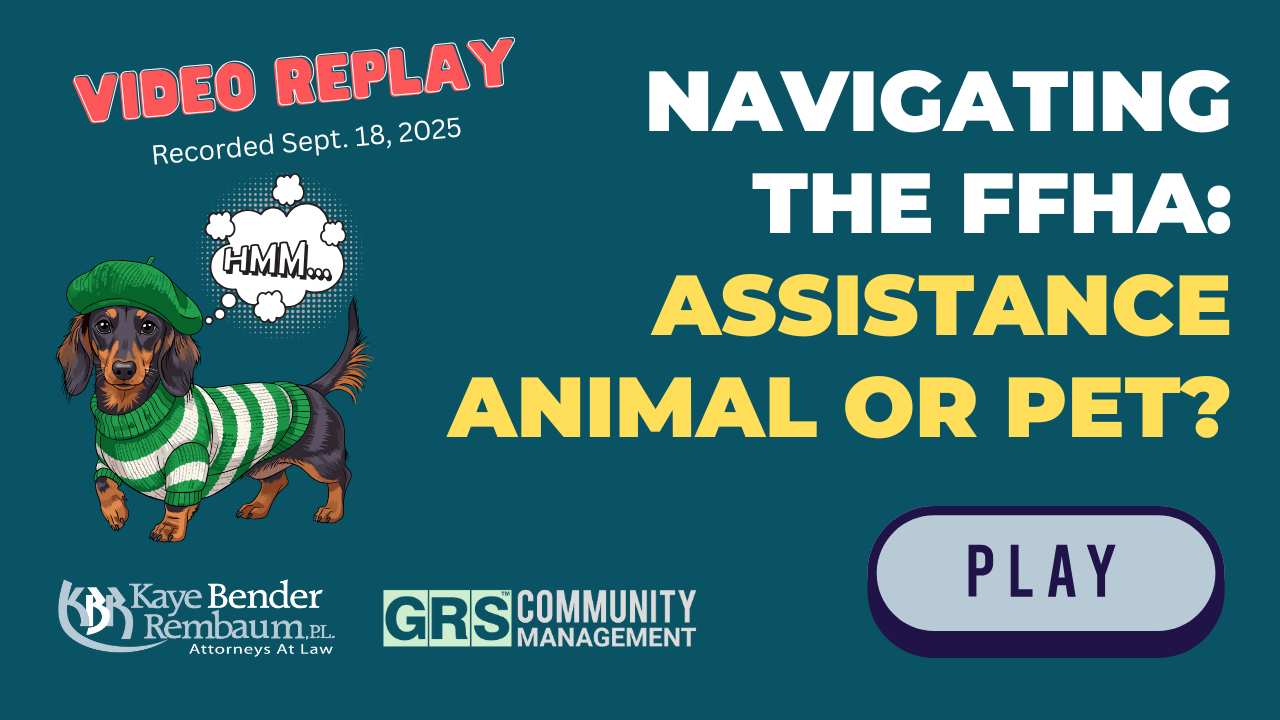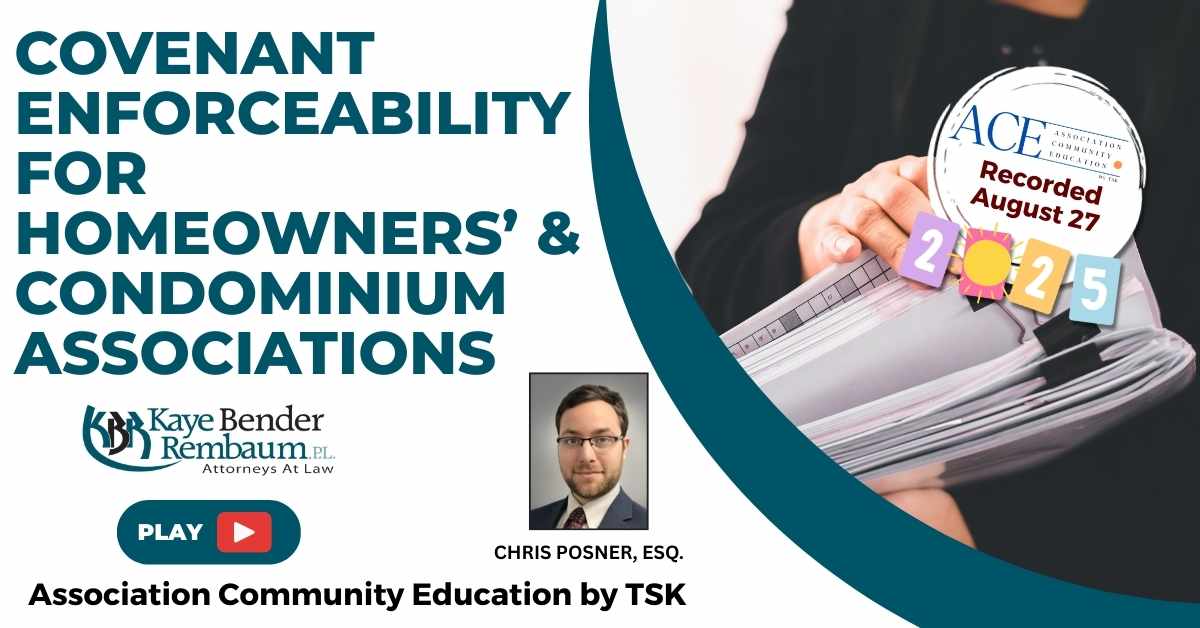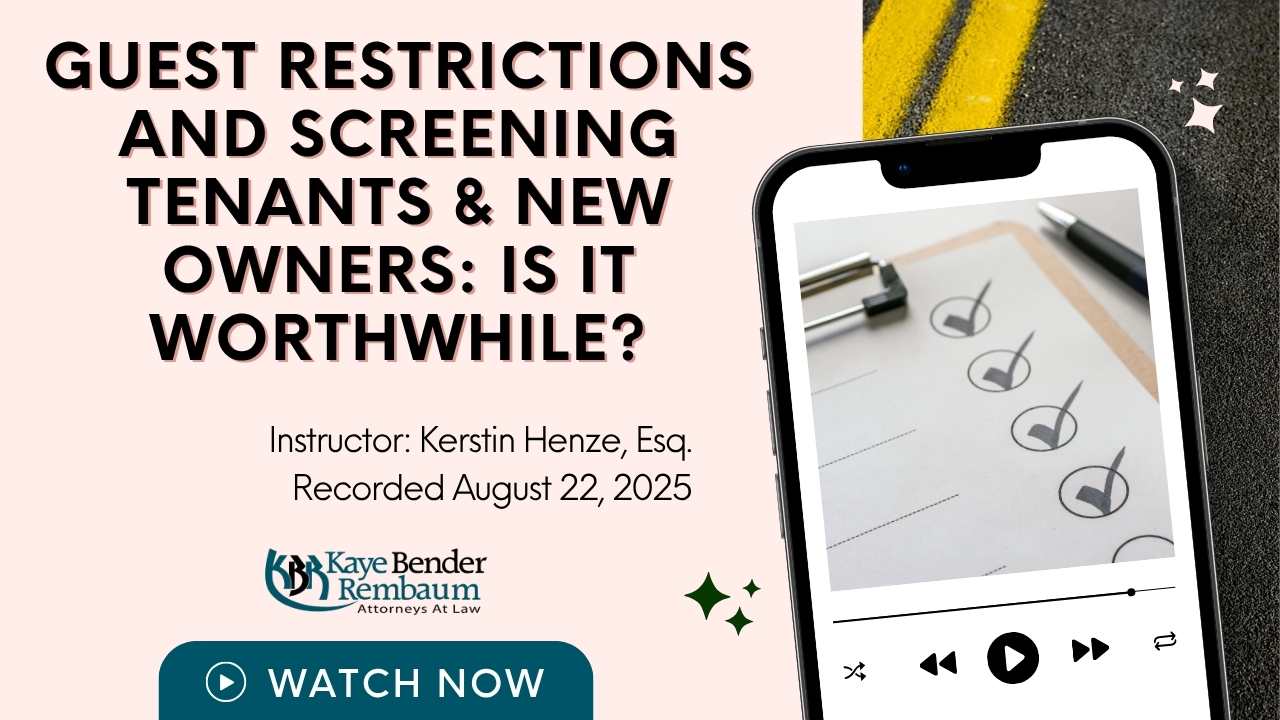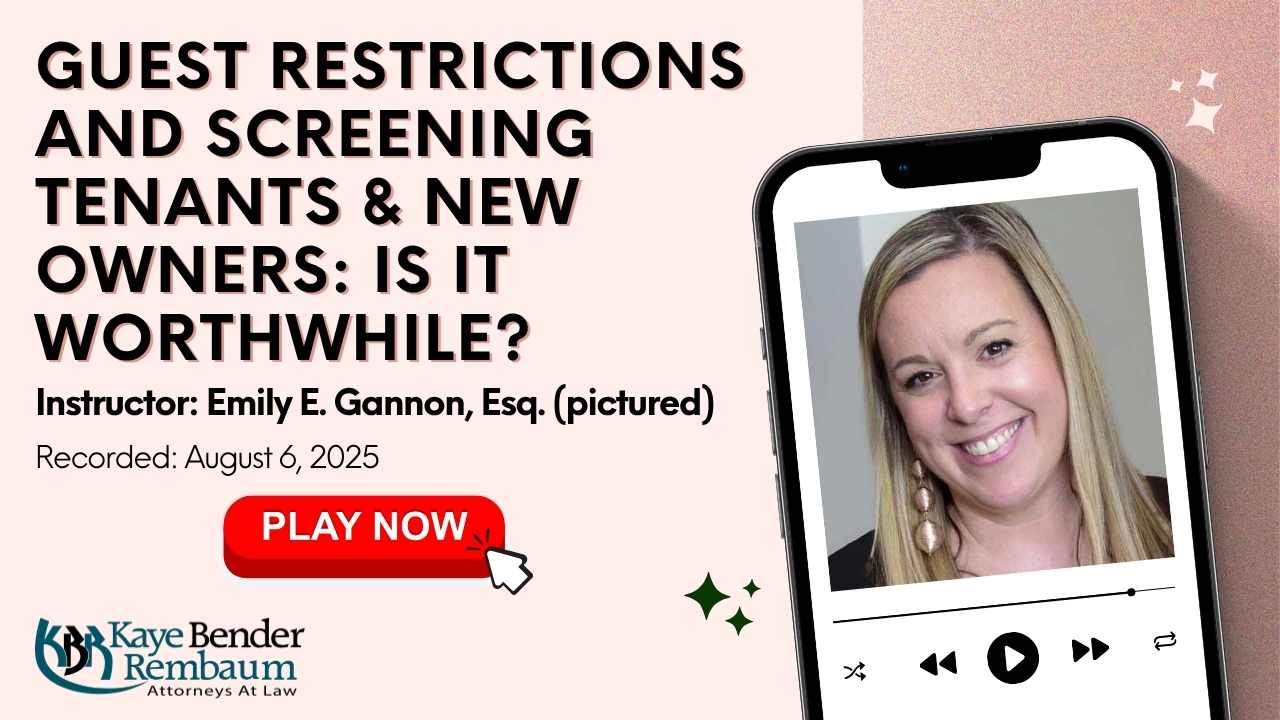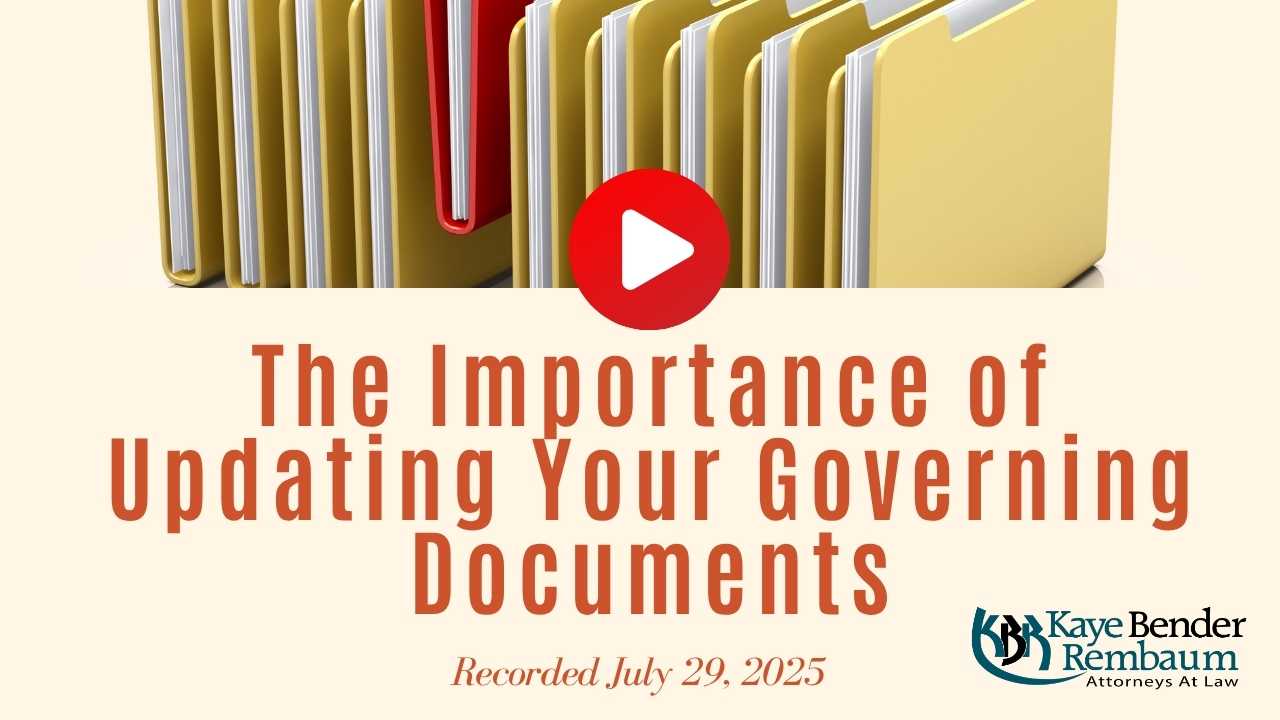*Read Before Viewing* | This recorded video WILL NOT satisfy Florida state certification requirements for Board Members, NOR will this recorded version offer CEUs for CAMS or Board Members. It is for informational purposes only and is not to be considered as legal advice. Should you have any questions, contact your association counsel.
This course will provide new and experienced Condominium Board Members with the latest legislative updates affecting their Florida Condominium Associations. Course led by Lisa A. Magill, Esq. BCS, of Kaye Bender Rembaum, P.L.



